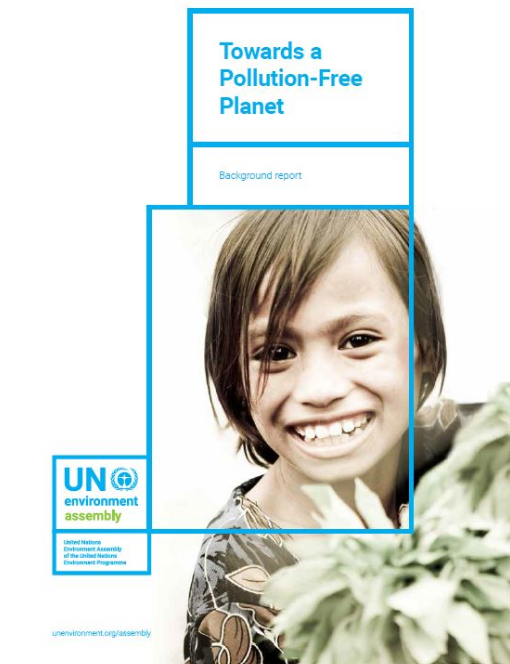UN Makes Global Bid to End 'Rampant' Water, Air and Land Pollution - Report
Published on by Water Network Research, Official research team of The Water Network in Academic
United Nations Environment Programme published a report titled ”Towards a pollution-free planet”, which aims to help with transitioning to a pollution-free world.
 ”Towards a pollution-free planet” is about encouraging a synergetic mix of actions and a wholesystem, multi-beneficial policymaking approach that builds directly on existing internationally agreed environmental goals, including those relating to climate change, disaster and risk reduction and the 2030 Agenda for Sustainable Development, with its numerous pollution-reducing targets.
”Towards a pollution-free planet” is about encouraging a synergetic mix of actions and a wholesystem, multi-beneficial policymaking approach that builds directly on existing internationally agreed environmental goals, including those relating to climate change, disaster and risk reduction and the 2030 Agenda for Sustainable Development, with its numerous pollution-reducing targets.
Transitioning to a pollution-free world can drive innovation and social equity throughout the economy, by seeing pollution prevention and regulation compliance as an opportunity to clean up everyone’s environment, create new jobs, improve economic productivity and protect the rights of this and future generations.
A pollution-free planet is by far and away the best insurance for the survival and well-being of current and future generations of humans and ecosystems.
To advance this goal, this report has the following five overarching messages :
- 1. A global compact on pollution would make prevention a priority for all. It would also encourage policymakers to integrate prevention into national and local planning, development processes, poverty reduction strategies and national accounts;
- 2. Environmental governance needs to be strengthened at all levels – with targeted action on “hard-hitting” pollutants through risk assessments and enhanced implementation of environmental legislation (including multilateral environmental agreements) and other measures;
- 3. Sustainable consumption and production, through improved resource efficiency and lifestyle changes, should be promoted; waste reduction and management must be prioritized;
- 4. Investment in cleaner production and consumption will help to counter pollution, alongside increased funding for pollution monitoring, infrastructure, management and control;
- 5. Multi-stakeholder partnerships and collaboration are vital for the innovation, knowledgesharing and transdisciplinary research needed to develop technological and ecosystem-based solutions. This report suggests a framework for actions on pollution, centred on a dual track of actions that Member States and other stakeholders may wish to consider to curb pollution around the world.
Read and download full report : UNEP
Media
Taxonomy
- Water Pollution
- Decontamination
- Decontamination
- Contaminant Removal
- Environment
- Pollution
- Water Pollution Control
- Groundwater Pollution
- Pollution
- Contaminant Control